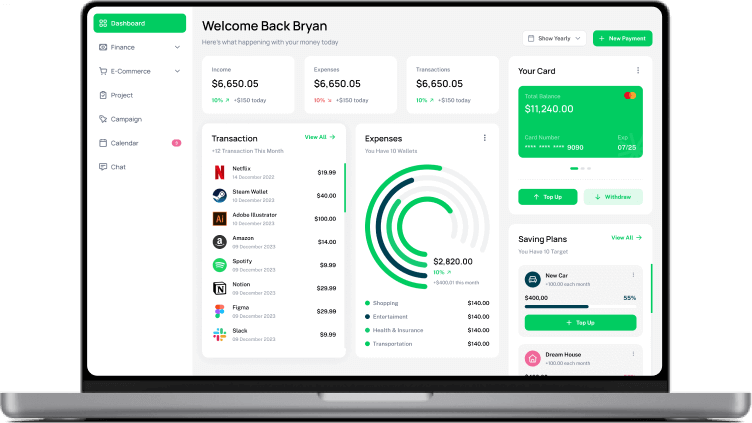Annual Contract Value (ACV)
Definition: It is an important measure for those in commission sales where SaaS (Software as a Service) and subscription-based business models are adopted. ACV is the average amount of yearly revenue a customer will generate for a business based on one contract, less any one-time fees for setups or onboarding.
Understanding ACV
ACV is used to measure the value of contracts with customers, which are then normalized on an annual basis. This then becomes the base for a business to gain the complete hold of what value of revenue can be expected from a contract every year, hence depicting an income scenario of stability and growth. The key components of ACV are defined below:
- Exclusion of One-Time Fees: ACV takes into account only the recurring revenue from a contract, excluding one-time charges, such as setup fees. This is because it is basically a measure of ongoing, predictable revenue from customers.
- Normalization: With multi-year contracts, ACV smooths out the distribution of the total contract value over the term of the contract. This method serves to present a consistent perspective on long-term contract earnings in every year.
ACV Calculation
The following is a simple formula for calculating the ACV:
ACV = (Total Contract Value – One-time Fees) / Number of Years
For example, if a company did a $150,000/3-year contract and had a one-time setup fee of $10,000, then ACV would be:
ACV = ($150,000 – $10,000) / 3 = $46,667
The Role ACV Plays in Commission Sales
There are several reasons why ACV, as applied in commission sales, should be understood and its purpose utilized:
- Revenue Prediction: ACV is used to predict revenues likely to be drawn by the contract by sales teams. It ensures financial planning and forecasting.
- Commissions Calculations: ACV directly influences the way calculations are made and the granting of commissions. Higher ACV contracts could also mean larger commissions, driving salespeople to work on cooler deals.
- Strategic Decision Making: Awareness of the ACV will help sales managers and executives make vital strategic decisions such as where to invest the resources and in which targeted markets.
Real-World Example
A cloud services company sells multiple subscription plans and typically has contracts that are 1 or 3 years. For a 2-year term of $24,000 committed payment by the customer (not including a setup fee of $4,000), ACV would be calculated in the following manner:
ACV = ($24,000 – $4,000) / 2 = $10,000
Such estimated ACV will serve as the basis for a sales commission program—a significant incentive for the sales force to strive for similar or higher-value contracts in order to maximize their compensation.
Comparing ACV to Other Metrics
ACV is often paired with Total Contract Value (TCV) and Monthly Recurring Revenue (MRR):
- ACV vs. TCV: TCV is the total value of the contract, total of what the contract will be worth including all one-time fees. ACV is spread over the term of the contract and does not have one-time fees included.
- ACV vs. MRR: MRR represents the monthly recurring revenue that one might generate from a contract. By multiplying MRR by 12, one can estimate ACV for situations in which income is earned in a fixed monthly amount.

